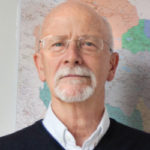Donald Trump is notorious for trying to shift the blame for his mistakes onto others. It’s one of his most egregious failings as a leader.
If there’s one thing that can be said about the current international situation without too much fear of contradiction, it’s that the most important bilateral relationship in the world is not in great shape. Frosty relations between the United States and the People’s Republic of China are not helpful at the best of times. At moments of crisis, they’re potentially disastrous.
Even before COVID-19 shook the foundations of the established economic order, relations between the US and China were increasingly competitive and fraught. Despite the great, mutually beneficial levels of economic interdependence that existed between the world’s two greatest powers, this was a source of growing animosity, rather than stability, as many liberal commentators believe.
True, Donald Trump is a president like no other in American history, but his personal style and seemingly limited grasp of complex economic, strategic and even health issues does not entirely explain his animosity or his belief that China is to blame for many of America’s problems.
The idea that the economic relationship with the PRC was responsible for economic decline and job losses in the American rustbelt was always an excessively simplistic reading of a complex set of interconnections. To be sure, some jobs were lost to China, but much of the trade was controlled by companies based in the US, and American consumers were some of the principal beneficiaries of the flood of imports produced by the PRC’s comparatively cheap labour.
The phrase ‘nuanced analysis’ is not one often seen in the same sentence as ‘President Trump’, though. Nor is it one associated with key advisors such as Peter Navarro, whose view of economics seems more reminiscent of the mercantilism of the eighteenth and nineteenth centuries, than it does of the twenty-first. Indeed, the principal quality demanded of Trump’s advisors is not specialist knowledge, but unquestioning loyalty to Trump himself.
The declining respect for expertise is especially acute in the US, and one of the reasons Trump is able to lie continually with apparently little impact on his reputation among his much-invoked ‘base’. On the contrary, anyone who criticizes Trump is invariably dismissed as part of an elite conspiracy designed to undermine their hero. As Tom Nichols points out in his excellent analysis of the death of expertise, ‘The United States is now a country obsessed with the worship of its own ignorance.’
This is not simply an American problem. Trump’s status as the most powerful man in the world is not just a telling indictment of the US’s political system and its fabled ‘checks and balances’, but it also means that the rest of the world is hostage to whatever passing fancy catches the attention of the President’s painfully limited attention span.
The consequences of Trump’s unhappy combination of narcissism and idiocy were on toe-curling display when he suggested that injecting bleach might be one way of dealing with COVID-19. More consequentially – for the rest of the world, at least – Trump is now attempting to blame China for the glaring failures of public policy and appalling Coronavirus-related death rates in the US.
To be fair, there is plenty of blame to go round. The PRC’s initial instinct to cover up an issue that might damage the reputation of Xi Jinping in particular and that of the Chinese Communist Part more generally, was not helpful. But its subsequent, rather brutal lockdown was effective and stands in stark contrast to America’s – much of which remains in denial or which sees attempts to respond as infringements of personal liberty.
If there is one consistent feature of Trump’s erratic leadership, it’s his enthusiasm for either taking credit or shifting blame. Stopping people arriving from China was a masterstroke apparently, especially as he has now decided there is evidence that the virus may have escaped (or been released) from a laboratory in Wuhan.
The fact that his own intelligence and health experts have been unable to produce any actual evidence to support this idea makes no difference to the conspirator in chief; or to reliable allies such as Secretary of State, Mike Pompeo, who is dutifully parroting the ideas of his boss.
Understandably enough, China’s leaders are not impressed. Equally importantly, nor are many ordinary Chinese. It is not difficult to fan the flames of indignant nationalism in China at the best of times. At moments of international crisis, such sentiments will make the prospects for much needed international cooperation and coordination that much more difficult to realise.
It is difficult to imagine a less intellectually, temperamentally or even morally qualified person than Donald Trump to be the leader of any country, let alone the most powerful state in the world. The great danger is that blaming China for any domestic problem will become the default option as the elections draw nearer in the US.
The even greater danger, perhaps, is that such a strategy might actually work, and we are faced with the prospect of another four years of Trump in the middle of one of the greatest crises the world has ever seen. If Trump does confound the pundits yet again, Americans will have no one to blame but themselves.




